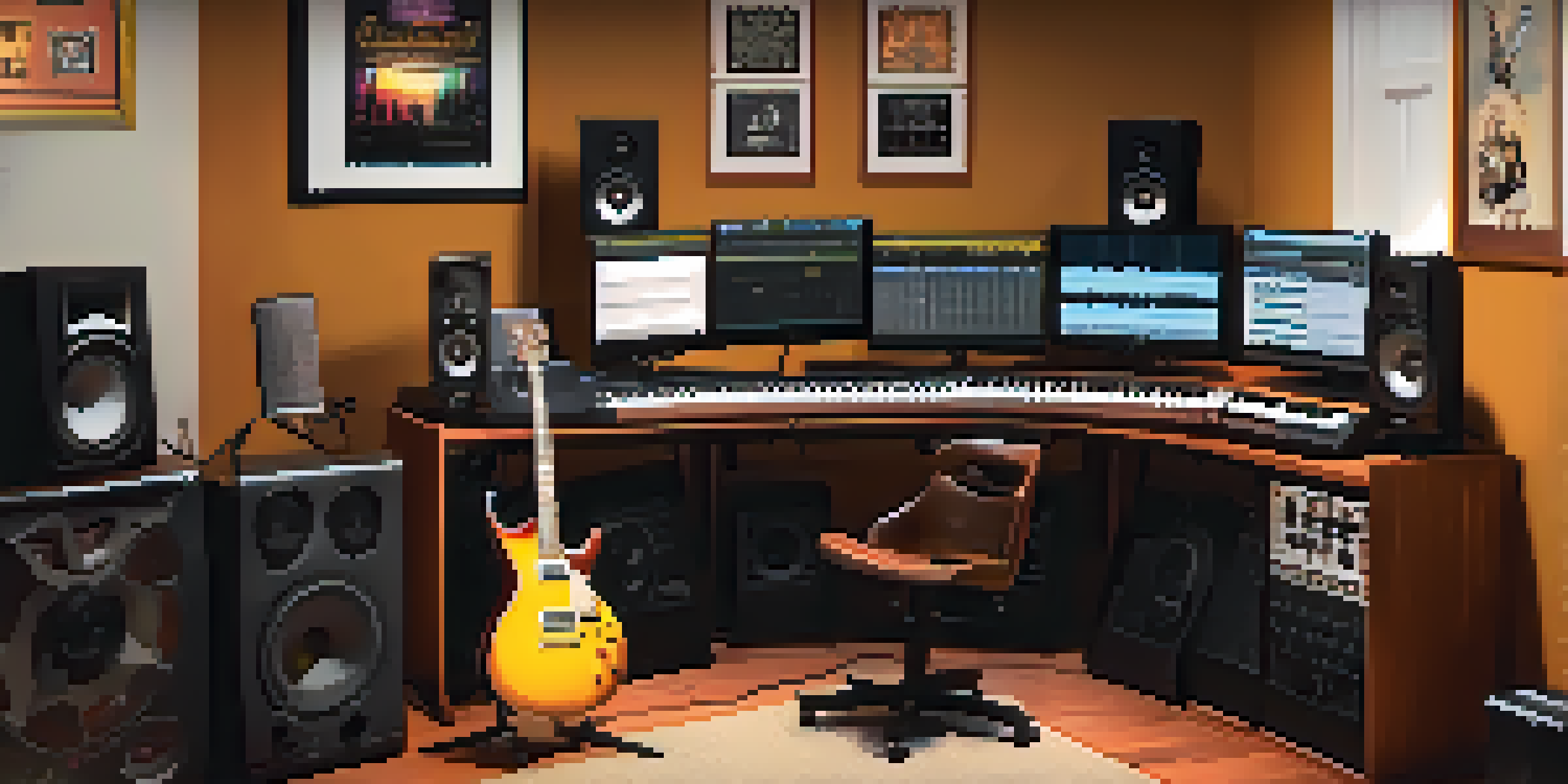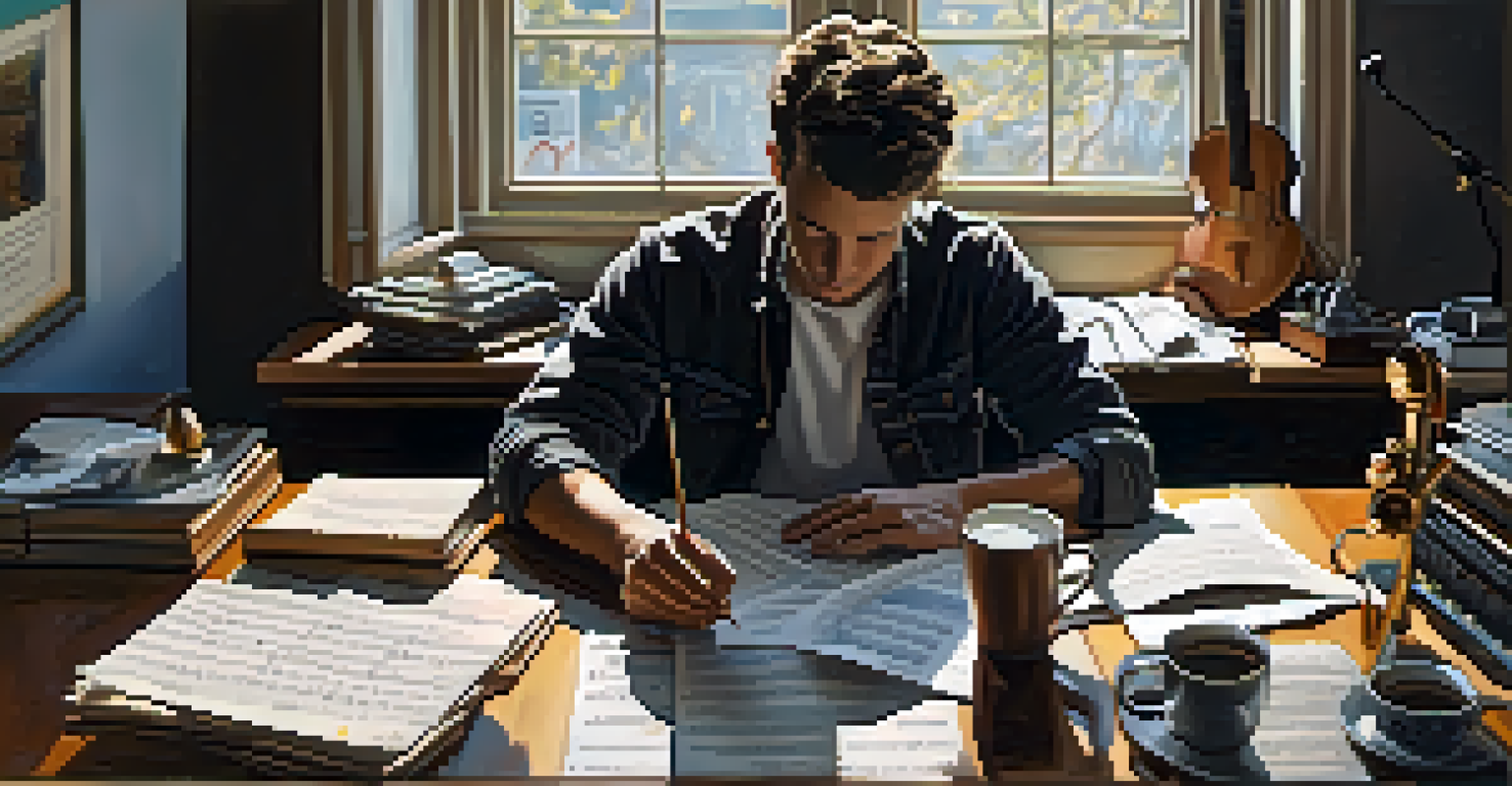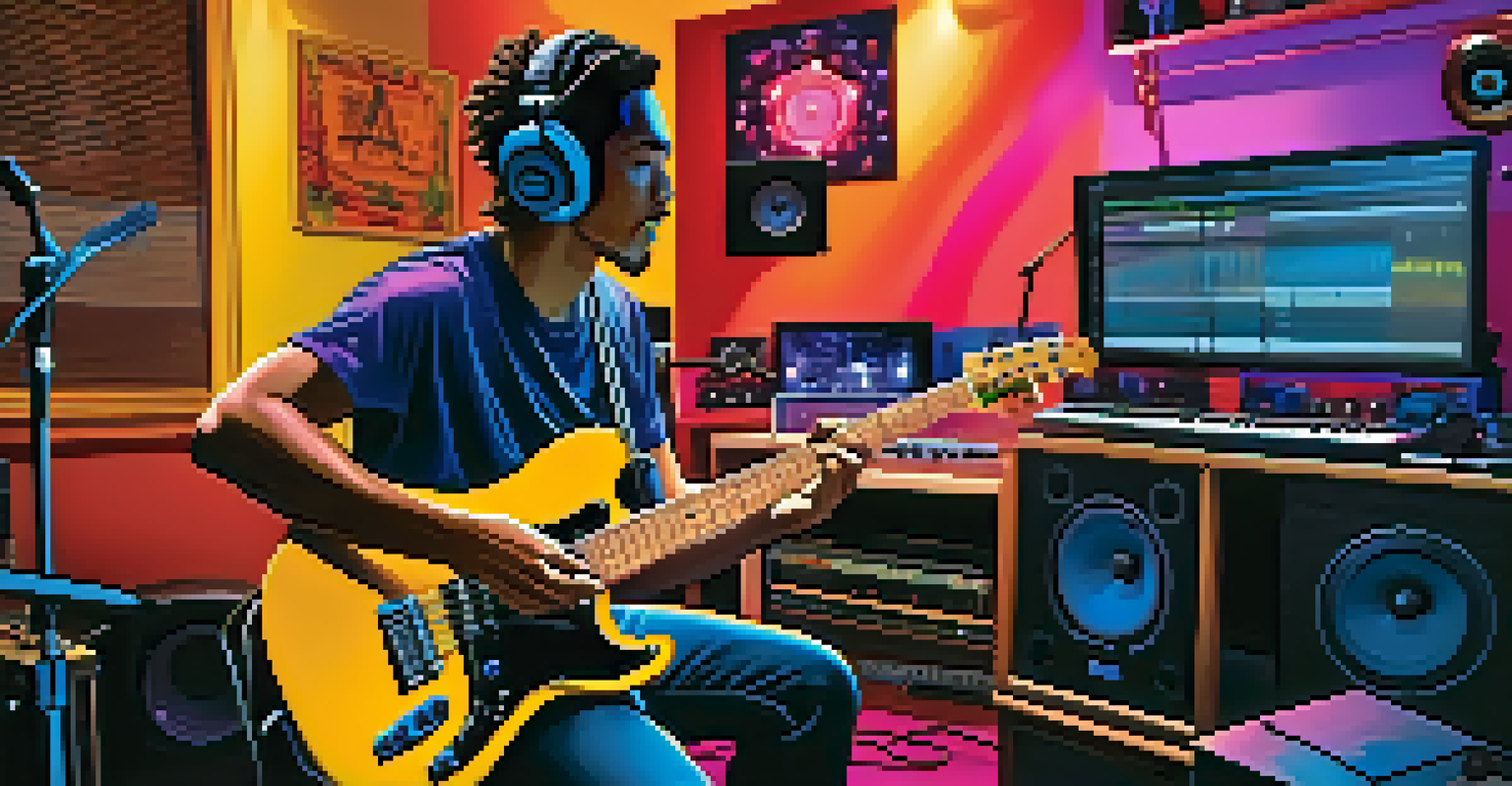Choosing the Right DAW for Guitar Recording Projects

Understanding What a DAW Is and Its Importance
A Digital Audio Workstation (DAW) is software that allows you to record, edit, and produce audio. For guitarists, this tool is essential for capturing your sound and arranging your music. Choosing the right DAW can significantly influence your workflow and the quality of your recordings.
Music is the shorthand of emotion.
Imagine your DAW as your virtual recording studio. Just as a physical studio has different gear and setups, each DAW offers unique features and interfaces. Understanding what makes a DAW suitable for guitar recording is the first step in your journey.
Whether you're a beginner or a seasoned pro, selecting a DAW tailored to your needs can enhance your creative process. Let's dive into what you should consider when making this crucial choice.
Consider Your Recording Style and Preferences
Before you choose a DAW, think about how you like to record. Are you a live performer who captures full band sessions, or do you prefer layering tracks piece by piece? Your recording style will guide you toward a DAW that suits your workflow.

For instance, if you thrive on spontaneity and live recording, a DAW with robust real-time capabilities may be your best bet. On the other hand, if you enjoy meticulously crafting your sound, opt for software that excels in editing features.
Choose a DAW for Your Style
Selecting a DAW that aligns with your recording preferences and style enhances your creative process.
Identifying your recording preferences will help narrow down the options, making the selection process feel less overwhelming. It’s all about finding a tool that feels intuitive and enhances your creativity.
Evaluate Your Budget for DAW Options
DAWs come in various price ranges, from free to several hundred dollars. Setting a budget before you start exploring can help you focus on options that won’t break the bank. Remember, the most expensive DAW isn’t always the best for your needs.
The best music is essentially there to provide you something to face the world with.
Free options like GarageBand or Audacity can be great starting points for beginners. As you grow, you might consider investing in more advanced software like Ableton Live or Logic Pro, which offer extensive features and capabilities.
Ultimately, your budget should reflect not only the software but also the potential for future upgrades. Choose wisely, and you’ll find a DAW that fits both your wallet and your artistic aspirations.
Explore Features Essential for Guitar Recording
When selecting a DAW, look for features that specifically benefit guitar recording. This includes things like virtual amp simulators, MIDI capabilities, and audio effects. These tools can enhance your guitar sound and streamline the recording process.
Additionally, consider the ease of use when it comes to these features. A user-friendly interface will help you navigate the software without frustration, allowing you to focus on your music instead of getting lost in complexities.
Budget Wisely for DAW Options
Establishing a budget helps you focus on DAW options that meet your needs without overspending.
Ultimately, the right features will empower you to create without limitations. Think about what tools will help you bring your vision to life and make sure the DAW you choose includes them.
Test Drive DAWs with Free Trials or Demos
Most DAWs offer free trials or demo versions, which are excellent opportunities to get a feel for the software. Take advantage of these trials to test how the interface works for you and whether it meets your recording needs. It’s like trying on a pair of shoes before you buy them!
As you explore, pay attention to how intuitive the software feels. Are you able to navigate easily, or do you find yourself frustrated? This experience can be a crucial factor in your decision.
Remember, you want a DAW that inspires you rather than hinders your creativity. Spend some time experimenting with different options to find the perfect fit.
Research Community and Support Resources
A strong community and ample support resources can make a big difference when you're learning to use a new DAW. Look for software that has a robust online community, tutorials, and forums where you can ask questions and share experiences. This support can be invaluable, especially for beginners.
For example, platforms like Pro Tools and Ableton Live have extensive online resources, including video tutorials and user forums. Engaging with these communities can accelerate your learning curve and enhance your skills.
Test DAWs Before Committing
Utilizing free trials or demos allows you to explore different DAWs and find the right fit for your music creation.
Having access to helpful resources will not only make your transition smoother but also enrich your recording experience. Choose a DAW that connects you with a community of guitarists and producers.
Consider Compatibility with Your Equipment
Before settling on a DAW, ensure it’s compatible with your existing equipment. This includes your computer’s operating system, audio interfaces, and any plugins you plan to use. Compatibility issues can lead to frustration, so it’s best to do your homework.
For instance, some DAWs are optimized for macOS, while others work better on Windows. Additionally, consider how well the DAW integrates with your guitar hardware, such as MIDI controllers or audio interfaces.

By ensuring compatibility, you’ll create a seamless recording environment that allows you to focus on your music instead of troubleshooting technical issues. Make this a priority in your decision-making process.
Make Your Choice and Start Creating!
After weighing all these factors, it’s time to choose your DAW and dive into your guitar recording projects. Remember, it’s all about finding a tool that resonates with your style and enhances your creativity. Trust your instincts and pick the software that feels right for you.
Once you’ve made your choice, take the time to explore its features and capabilities fully. The more familiar you become with the software, the more effectively you can create and produce your music.
Ultimately, the most important aspect is to start recording and have fun. Your guitar playing deserves to be captured, and the right DAW will help you do just that!